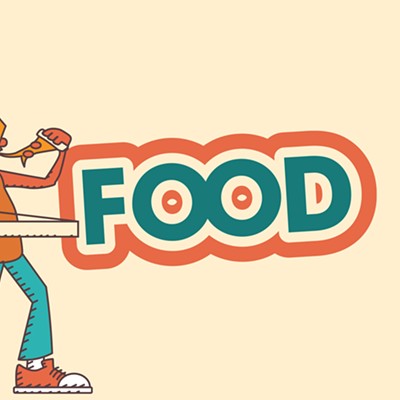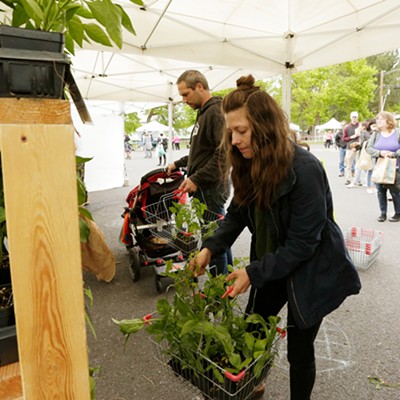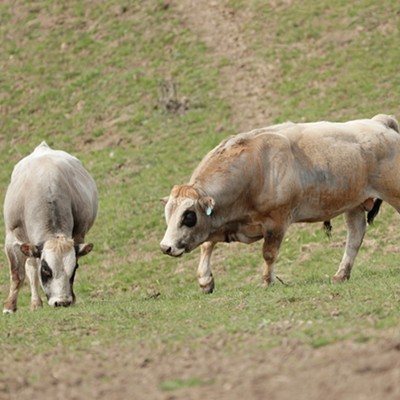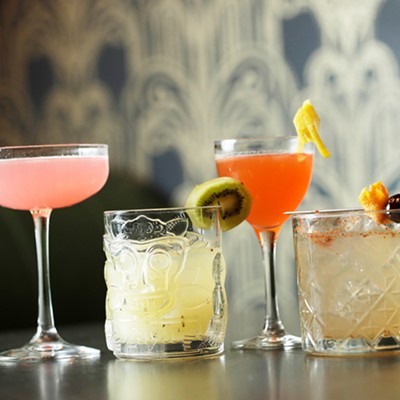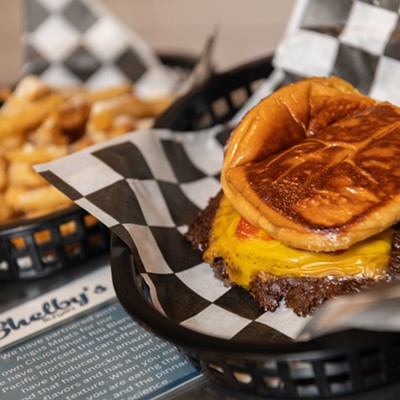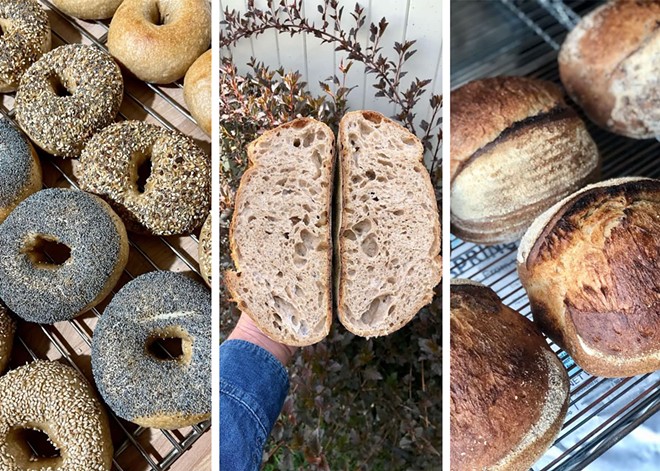
Get up. Surf. Cook. Repeat. Noah Rosen was living the California dream — a punk teenager who went to culinary school, worked in the best San Francisco kitchens, then headed south to be a private chef for the Los Angeles elite.
After early mornings on the waves, Rosen regularly combed the Santa Monica Farmers Market, picking the best ingredients and getting spontaneous in the kitchen. He started a sourdough starter on the side, just to dabble.
Rosen never meant to become a baker. But moving to Spokane in 2021 disrupted a lot of his life, so he anchored himself in the daily rhythms of breadmaking. He started Viva Ultra Bread from scratch in his basement, still getting up at dawn, but this time to the rise and fall of leavening and the growing waves of customers at his back door.
Named after a Palace Music song (one of indie-rock legend Bonnie "Prince" Billy's early groups), Viva Ultra keeps the vibes alive. Rosen's breads are as honest and straightforward as a '90s troubadour — self-milled, unsifted whole wheat flour mixed with his original, decade-old starter — but also as finely tuned and perfected as any artisan could dream of.
Rosen's dedication to quality ingredients started in his grandmother's garden and followed him through the fine dining scene of Northern California. Spokane now gets to feed off his relentless pursuit of the best, which has created kick-ass loaves that undermine a complacent, Wonder Bread world.
On Mondays, Wednesdays and Fridays, Rosen builds. He gets up in the dark, puts his headphones on, then heads downstairs. He preps pecans for roasting, measures poppy seeds for bagels and fills a worn, orange Dutch oven with water, setting it on an electric hot plate to warm. The key to building gluten is keeping the temperature consistent.
A Mockmill 200 Pro grain mill sits on the top shelf of the corner cabinet. Rosen mills as many Palouse Heritage wheat berries as he can in the vintage machine, which can only process a few pounds of grain at a time. In a day, Rosen needs to build a hundred bagels and dozens of sourdough loaves. Eight bags of bread flour from Cairnsprings Mill, 50 pounds each, sit under his workstation to supplement what the Mockmill can't provide.
When the water is 88 degrees, Rosen pours it into a tub of flour and gets elbow deep into mixing. If he puts it in the electric mixer, a steel machine the size of a toddler, there will inevitably be hidden clumps of dry flour, he says. Hands are the only way to make sure all the dough gets hydrated.
Rosen, jamming to an album or podcast episode in a red snapback and graphic tee, dips his fingers in the warm water, swirls it a few times, then digs to the bottom of the flour. As the mixture comes together, it sticks to the sides of the tub. Rosen scoops around the edges and folds it into the center. It immediately laps back into the corners. Rosen catches the ripples and scoops again. More water is heating, and once this tub is mixed, Rosen will start all over again with the next.
The next six hours will fade away into a perfect orchestration of kneading, proofing, rising and shaping, each step finishing precisely when the next stage begins. Mix. Knead. Bake. Repeat. ♦



